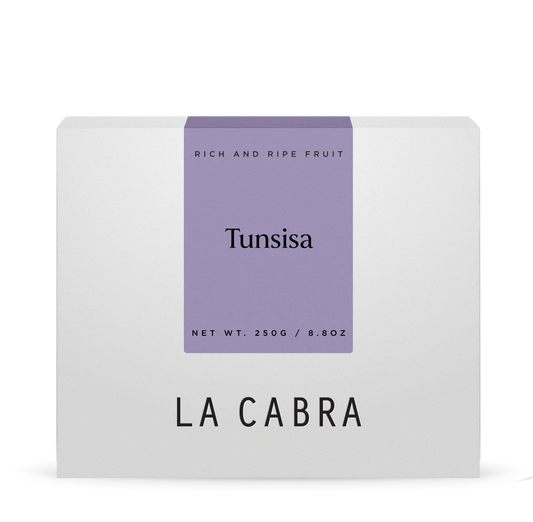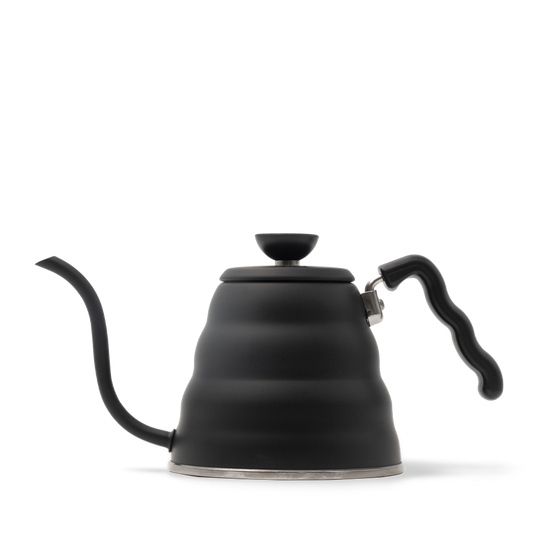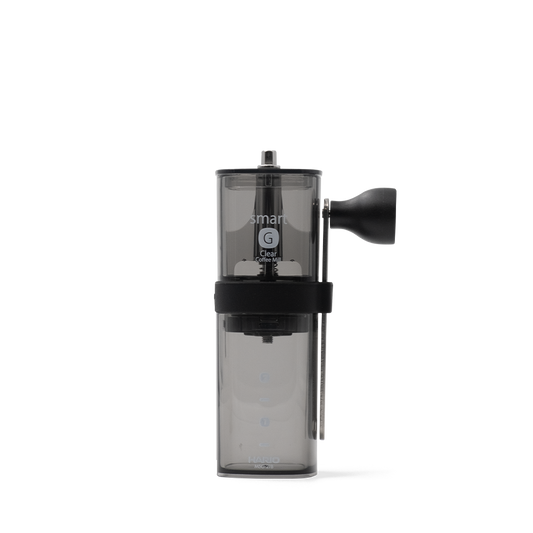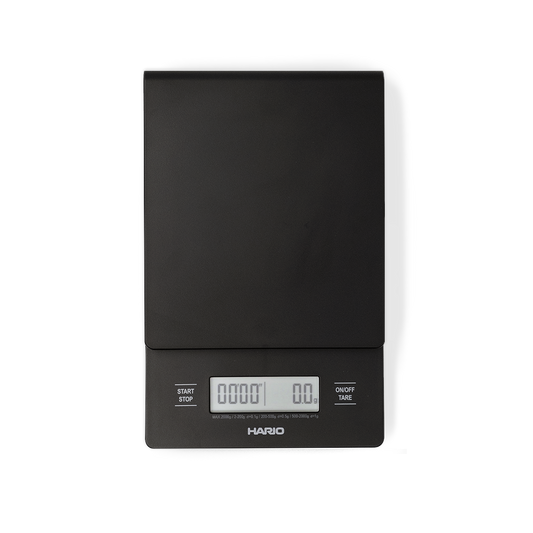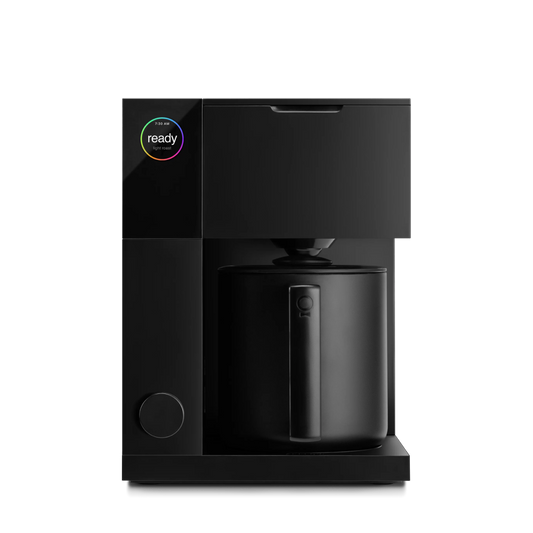Brazil
José Romão
José Romão
A bright Catuai lot from José Romão in the mountainous Espírito Santo region, with a crisp character of peach iced tea
About
Coffee Expression The Espírito Santo terroir results in a rather different expression of Brazil; this washed lot has a bright and delicate character of peach iced tea.
Producer José has always aimed for quality, often placing highly in local quality competitions.
Whole Bean Coffee / Both for filter and espresso
Technical Data
Producer José Romão
Region Espírito Santo
Altitude 1000 masl
Varietal Catuai
Process Washed
Harvest September 2024
Brewing Advice
Water is one of the most critical components of an excellent coffee experience. We recommend using mineral water of a soft Total Dissolved Solids count, ideally below 150 ppm.
Rested coffee During the resting process, harsh and astringent flavors, which can even be perceived as a ‘roast’ character, soften out, allowing a clearer and brighter expression of the coffee’s character to shine.
We recommend resting our coffees for at least 10 days after the roast date, and we often find excellent results, especially for particularly dense coffees, beyond 6 weeks.
Brewing Our straightforward approach to coffee carries over into brewing. We recommend our roasted coffee for all brew methods, regardless of whether it is immersion, percolation or espresso. We believe that there is one correct way to roast a single coffee, roasting lightly, in such a way as to release its innate qualities and showcase its quality. Learn more about different brewing techniques and specific brew guides here.
Shipping & Delivery
· Free shipping above $79 and on all subscription orders
· Ships within 1-3 days from Brooklyn, New York

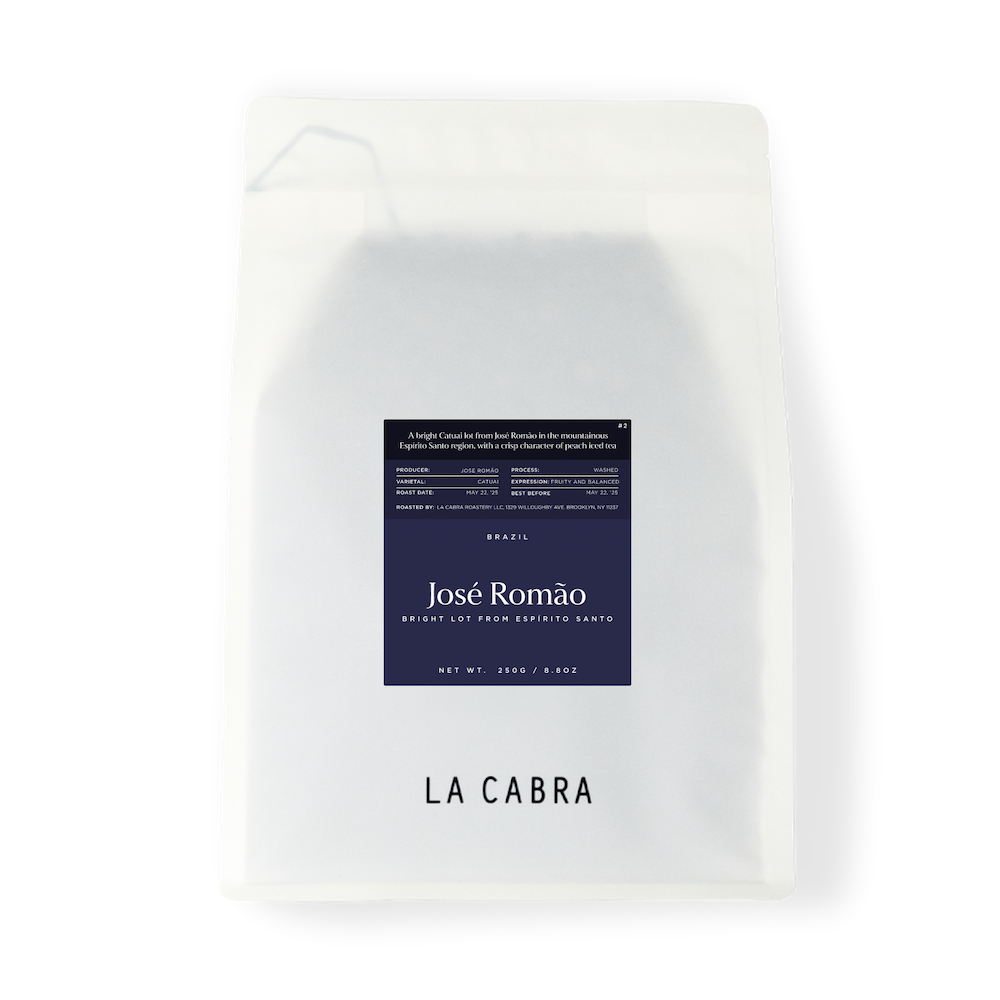
José Romão
José grows coffee on a small plot in the steep mountains of Espírito Santo. This region is distinct from much of the rest of Brazil, with cool conditions influenced by the high altitude and proximity of the Atlantic Ocean. Small farms are picked by hand, and often processed using a washed method, as full naturals are difficult to dry effectively in the cool and humid conditions.
José’s family has always farmed here, so have honed their skills in the unique Espírito Santo terroir, unaffected by the conventional wisdom of the rest of the country. This has led to excellent quality, José has often placed well in local quality competitions, and is now passing his knowledge onto his two sons, Vito and Guilherme. As is rather normal here, José also has a diversified income, growing bananas which he processes into banana candies on the farm.

This lot is a washed Catuai, with a bright and delicate character of peach iced tea.
Espírito Santo
The Montanhas do Espírito Santo coffee growing region lies in the western highlands of the state of Espírito Santo. Coffee farms here are distinct from those in the rest of Brazil in several ways. Production here more closely resembles that in other countries in South America, with small family-owned farms perched on steep mountainsides. The climate is rather cool due to the influence of the nearby Atlantic ocean, and the mountainous terrain creates many distinct microclimates, leading to perfect conditions for growing slow-maturing high quality Arabica coffees.

Due to the steep terrain, most producers in Espirito Santo pick by hand, unlike much of Brazil. These conditions, alongside the varying techniques of many small scale farmers, result in distinct and characterful coffees, most of which are harvested 1-2 months later than the rest of the country. Coffees from Espirito Santo tend to have higher acidity and more distinct fresh fruit notes than many other Brazilian coffees.

You might also like
-
Elida Washed
100g (3.53oz)Regular price $56.00 USD$56.00 USD Regular priceUnit price / per -
Elida Natural
100g (3.53oz)Regular price $56.00 USD$56.00 USD Regular priceUnit price / per -
Potosí Natural
200g (7.05oz), 1kg (2.2lb)Regular price From $26.00 USDFrom $26.00 USD Regular priceUnit price / per -
Agua Limpa
250g (8.8oz), 1kg (2.2lb)Regular price From $19.00 USDFrom $19.00 USD Regular priceUnit price / per -
Jorge Vásquez
250g (8.8oz), 1kg (2.2lb)Regular price From $28.00 USDFrom $28.00 USD Regular priceUnit price / per
Complete your setup
-
V60 Dripper - Wood
1-2 Cups, 1-4 CupsRegular price From $42.00 USDFrom $42.00 USD Regular priceUnit price / per -
V60 Dripper - Plastic
1 Cup, 2 CupRegular price From $12.00 USDFrom $12.00 USD Regular priceUnit price / per -
V60 Dripper - Switch
Regular price $44.50 USD$44.50 USD Regular priceUnit price / per -
Hario Black Buono Kettle
Black 1.2LRegular price $80.00 USD$80.00 USD Regular priceUnit price / per -
Hario Coffee Mill Smart G
Regular price $52.00 USD$52.00 USD Regular priceUnit price / per -
Hario Drip Scale
Regular price $60.00 USD$60.00 USD Regular priceUnit price / per -
Fellow Aiden
Regular price $365.00 USD$365.00 USD Regular priceUnit price / per -
Fellow Stagg EKG
Black, WhiteRegular price $165.00 USD$165.00 USD Regular priceUnit price / per -
Fellow Aiden Paper Filter
Cone Single Brew, Flat Bottom Batch BrewRegular price $8.95 USDBuy 3 save 10%$8.95 USD Regular priceUnit price / per -
Fellow Tally Pro
Regular price $185.00 USD$185.00 USD Regular priceUnit price / per -
Kinto Coffee Server
2 Cups, 4 CupsRegular price From $12.00 USDFrom $12.00 USD Regular priceUnit price / per -
Sepia Kinto Coffee Server
300ml (10oz), 600ml (20oz)Regular price From $28.00 USDFrom $28.00 USD Regular priceUnit price / per









